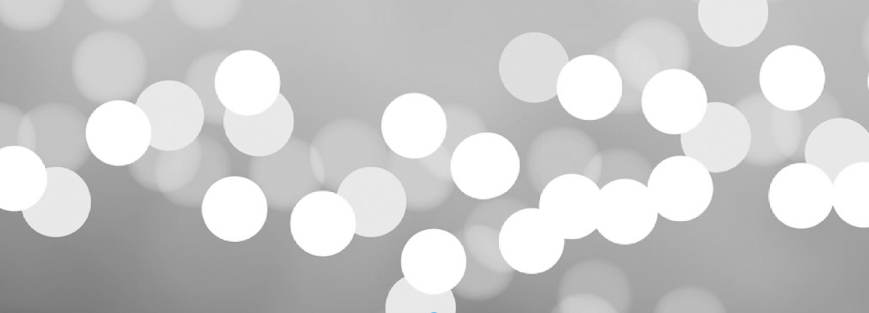Brain Health and Sleep
The core of your basic well-being lies in the brain. It is the command center of every function in your body. If your brain is nourished and functioning properly, your body functions properly. If your brain is malnourished and mistreated, the body shuts down and responds negatively.
We need to feed it with proper, quality fuel in order for it to work. God-made over man-made foods—natural, organic brain foods such as fruits, vegetables, lean meats, and healthy fats—contain nutrients that are crucial to the body and to brain health. Also, eating slowly helps our brains comprehend the body is refueling and will help prevent overeating. The brain needs approximately 20 minutes before it gets the message that the stomach is full. But food isn’t the only aspect to consider; there are many other factors that influence proper brain health—and, ultimately, overall health. Some of these include environmental toxins (such as cleaning showers with chemicals and no clear ventilation; manicure and pedicure parlors; hair salon; pollution, etc.), drug and alcohol use, smoking, and traumatic injuries (accidents, bumps on the head, contact sports, etc.). One absolutely important thing you have to keep in mind—your brain is the consistency of jello! Any trauma to the head or toxic influence, especially during growth and development as a child/teen/young adult, is extremely impactful to brain development, and will often show results later in life—if not sooner!! So, first, we have to remember the delicacy of the human brain, and we have to purposefully care for it.
So what about sleep?
Before Edison invented the light bulb, we slept an average of nine hours. Then came TV, computers, Starbucks, cell phones, video games, and so on. A “[s]tudy was conducted in England sponsored by Hewlett-Packard—results determined that people addicted to computers, email, text messaging, etc., lost 10 IQ points over the period of a year—about twice what one would lose if he/she were to smoke marijuana” (Daniel Amen, MD- Liberty University).
*And, no, that’s not an excuse to condone marijuana use…for you smarty pants out there.* Lack of sleep is literally killing your brain! Our brains are on overload, because we are on overload; our schedules are jam-packed, and it’s go, go, go!
The brain is constantly processing information and receiving massive amounts of stimulation over longer and longer periods of time. It cannot keep up, particularly if we do not give it rest. “Sleep is vital to your brain development—people who get less than 6 hours of sleep at night have a decrease in blood flow to the brain which results in premature aging of brain…the brain regenerates itself during sleep process” (Daniel Amen, MD- Liberty University). It’s like a computer. It functions well when it’s maintained well—when we turn it off and let its inner processing “rest.” If it continuously runs, or runs more than the suggested amount, its internal components will wear out, and will eventually die. Likewise, our brains need the ability to rest and reset. If it’s continuously running, it will deteriorate.

How does lack of sleep affect weight?
Putting on extra weight is one of the physical effects of sleep deprivation. One of the reasons why chronic sleep deficiency causes you to be overweight is that it affects your hormones. Studies report that the hunger hormone ghrelin increases when you are deprived of sleep. At the same time, lack of sleep inhibits leptin – the hormone that makes you feel full. This hormonal imbalance can lead to overeating and obesity…Sleep deprivation can affect your weight because it also affects glucose tolerance and insulin sensitivity. This lack of sleep can cause fat accumulation and increase your risk of obesity complications.
Jenny Hills, Nutritionist and Medical Writer
What can you do to improve your sleeping habits?
First thing to note, avoid turning to prescription meds for the answer. “Most only increase total sleep time by about 20 to 30 minutes” (Carr) anyway, and they can pack some pretty harmful side effects.
Here are some tips for improving sleep from Dr. Mercola:





Also, here is a video that may help educate about brain and body health in regard to lack of sleep:
Disclaimer: All of the content provided on this page, including text, treatments, dosages, outcomes, charts, profiles, graphics, photographs, images, advice, messages, and postings, are for informational purposes only and DOES NOT CONSTITUTE THE PROVIDING OF MEDICAL ADVICE and is not intended to be a substitute for independent professional medical judgment, advice, diagnosis, or treatment. I am not medically-certified in any manner, and offer the aforesaid information as education based on previous research, education, and basic knowledge. The content is not intended to establish a standard of care to be followed by a user of this page. You understand and acknowledge that you should always seek the advice of your physician or other qualified health and nutrition provider with any questions or concerns you may have regarding your health. You also understand and acknowledge that you should never disregard or delay seeking medical advice relating to treatment or standard of care because of information contained in or transmitted through this page. Medical information changes constantly. Therefore the information on this page or on any linked websites should not be considered current, complete or exhaustive, nor should you rely on such information to recommend a course of treatment for you or any other individual. Reliance on any information provided on this website or any linked websites is solely at your own risk.
*Dr. Daniel Amen, Liberty University, Jenny Hills, Healthy and Natural World, Dr. Mercola, and Tech Insider do not sponsor, endorse, or is not affiliated in any way with Lights in the Darkness and its contents.
References
Daniel Amen, MD (Interviewed by Jennifer Cisney, M.A.). Liberty University.
HIlls, J., “Here’s What Getting Less Than 7 Hours of Sleep a Night Can Do to You.” Retrieved February 4, 2021 from Healthy and Natural World
Carr, Teresa. 2018. “The Problem With Sleeping Pills.” Retrieved February 8, 2021, from https://www.consumerreports.org/drugs/the-problem-with-sleeping-pills/#guide
Mercola, J. 2016, “What Happens in Your Body When You’re Sleep Deprived?” Retrieved February 4, 2021, from Mercola
“What Happens To Your Body And Brain If You Don’t Get Sleep | The Human Body.” YouTube, uploaded by Tech Insider, Dec 26, 2017. https://www.youtube.com/watch?v=Y-8b99rGpkM&t=11s

